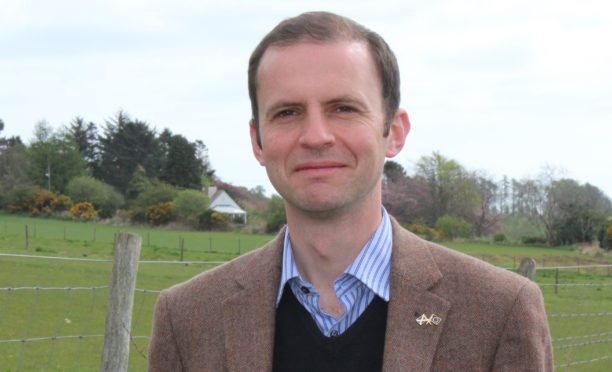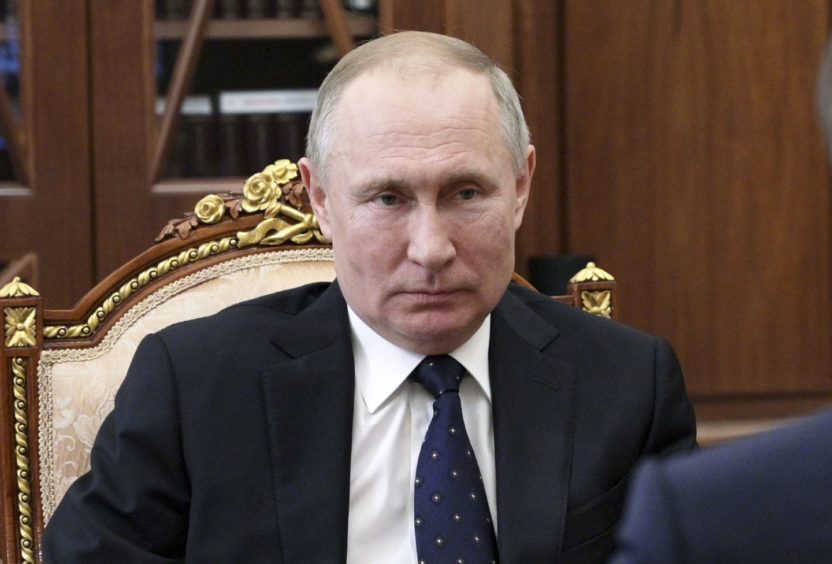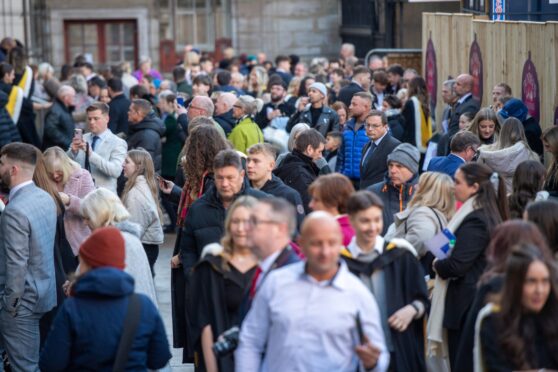Russia is a great country. Throughout the centuries its people have contributed much to the world from the arts to engineering and the rest.
It is not just a one way process with Scots making a huge contribution in the shaping of Russia. Courier country broadcasters Brian Cox and Billy Kay have both made fascinating programmes about the Scots in Russia that are well worth a watch. Who knew that Russian literary great Mikhail Lermontov could trace his roots back to Crail and Robert Burns and Irn-Bru remain a big hit in the country?
Yet in recent years there has been a darker side to Russia’s interaction with the rest of the world. Vladimir Putin has stated his regret at the collapse of the Soviet Union. The country has failed to come to terms with its former satellites that have thrived with their hard-won democracy and independence.
These have ranged from cyber attacks on our partners like Estonia to waging war in Ukraine and Georgia. I have worked in both countries where Russian interference was taken as a given and ordinary people’s lives turned upside down by conflict.
The report of the Intelligence and Security Committee should come as no surprise to those of us who have been following Russia’s actions over the years. Disinformation and the spreading of fake news have become the norm. It follows a steady pattern that countries around Europe and the former Soviet Union are familiar with.
Yet despite consistent warnings the clear picture that has emerged is one of inaction from the UK Government. Lessons were not learned and there are significant questions over the UK response to repeated warnings.
The report is particularly critical of the UK Government’s ‘lack of curiosity’ over Russian involvement in the EU Referendum in 2016 that the committee describes as in “stark contrast” to the US response to any involvement in the presidential vote the same year.
There are broader issues too that the UK has failed to deal with relating to financial dealings. Back in May 2018, parliament’s cross-party Foreign Affairs Committee Report “Moscow’s Gold: Russian Corruption in the UK” warned about of the dangers of illicit finance.
The report highlighted its concerns around the flow of money from Russia and that “The Government must show stronger political leadership in ending the flow of dirty money into the UK”.
That report was published over two years ago yet yesterday’s report demonstrates there is still a problem and that “successive governments have welcomed the oligarchs and their money with open arms, providing them with a means of recycling illicit finance through the London ‘laundromat’”.
It shows that the extent of Russian interference and links is more deeply rooted in the UK than many would care to admit.
No-one should be under any illusion about the kind of regime we are dealing with. Vladimir Putin has recently changed the constitution so that he can effectively remain president for life.
Back in 2016 I travelled to Russia with the Foreign Affairs Committee where we spoke to some of the bravest campaigners I have met, including human rights and democracy activists as well as groups representing the mothers of Russian soldiers.
They and their families routinely faced intimidation and violence because they sought rights we take for granted. It is a country where it is dangerous to be an opposition politician or journalist.
Yesterday’s report was yet another warning that Russian interference is real in the UK. It also flagged the financial relationships that members of the House of Lords and even political parties have with Russian finance.
That deserves greater scrutiny; indeed the report flagged that the Code of Conduct requiring MPs to register payments of more than £100 does not apply to the Lords.
For years there have been warnings about Russia’s actions including interference and misinformation campaigns among its neighbours and other countries and the impact of the devastating conflict in Syria.
There have also been consistent warnings about the impact of Russian money in London. That deserves scrutiny and action.
The people of Russia have given the world so much. They deserve better than this increasingly authoritarian Moscow administration. They also deserve better from the UK and greater transparency and openness here as well.
Stephen Gethins is a Professor of Practice at the School of International Relations at the University of St Andrews. He served on the Foreign Affairs Committee of the UK Parliament from 2015 to 2019











